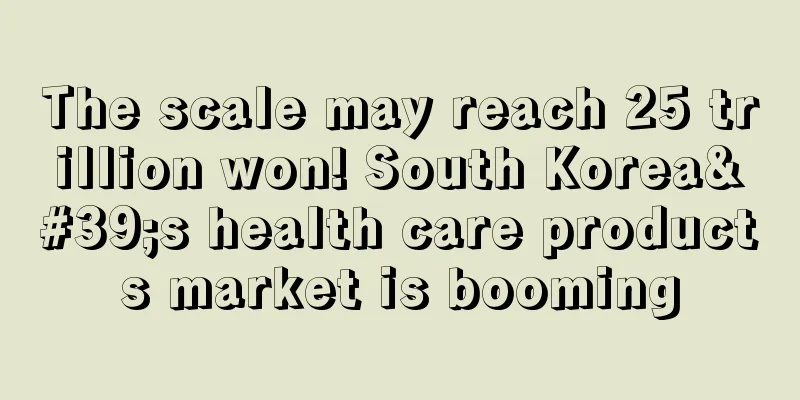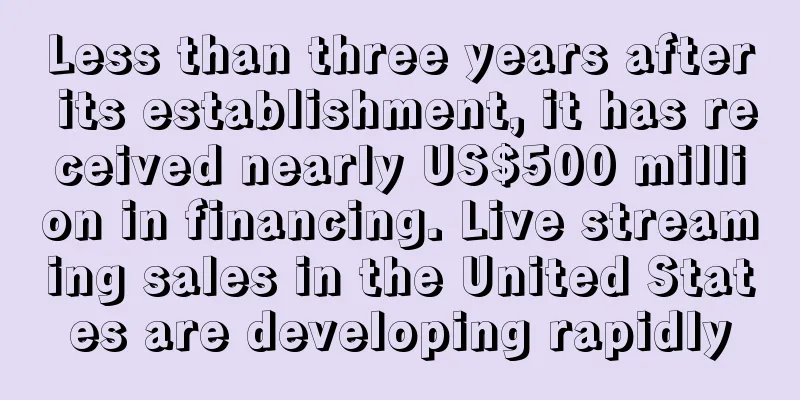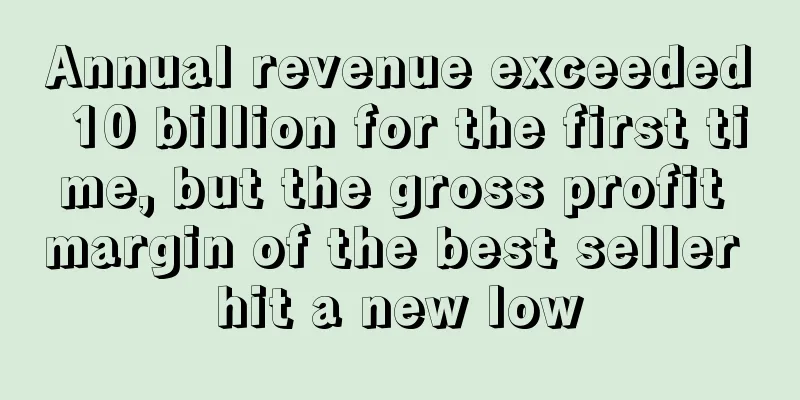The scale may reach 25 trillion won! South Korea's health care products market is booming

|
According to statistics, the size of South Korea's health products market was about 3.56 trillion won (US$3.18 billion) in 2016, and increased to about 4.98 trillion won in 2020. The association estimates that by 2030, the market size may exceed 25 trillion won.
Recently, South Korea conducted a public opinion survey on Opensurvey with 1,000 respondents .
47.9% of people said they bought health products through online shopping platforms ; about 29% of respondents believed that the most reliable source of information about health products was the Internet; about 26.7% of respondents believed that it was recommendations from family, friends and acquaintances; and about 6.9% said they got information from online communities.
Other data showed that last year, young people in their 20s and 30s bought 32% more health supplements than the year before .
A spokesperson for Olive Young said: “In the past, probiotics and red ginseng were the two most popular health products, but as young people begin to care about their health, supplements including collagen, hyaluronic acid and multivitamins have become very popular . We hope to double the sales of health products by 2023.”
As demand grows, companies are rushing to enter the health supplement market to attract more potential customers. Data shows that there were 12,495 types of health supplements in 2012, but this doubled to 26,342 in 2019.
In addition, Pulmuone Health & Living began to provide customers with a "packaging" service in July, customizing exclusive health products according to their health conditions . The supplements are individually packaged into small batches so that people can take them easily .
Lotte Mart said it is in the process of registering Viva Health Market as a trademark and is currently discussing the launch of a health products business .
Kang Baek-joon , a spokesman for Amway Korea , said: "With the outbreak, people's interest in health supplements has expanded to various fields, and although the Korean health supplement market is currently in its infancy, it will expand further in the future. "
Experts say that people can take health supplements, but they should also be aware of the problem of abuse of health supplements.
"Substance abuse is a very serious problem in South Korea," said Jang Ji-na, CEO of online platform Ayak. "Health supplements have fewer side effects than drugs, but it is necessary for people, especially those with existing illnesses, to check in advance whether they can take drugs and health supplements at the same time."
Professor Kang said : "Many experts believe that health supplements are good for those who are deficient in vitamins, but I suggest not to be attracted by advertisements or internet celebrities, but to pay attention to whether the products have passed the inspection of the food and drug safety department ."
Sellers should adjust and improve product labels based on the functional scope of their products after approval, promote products legally , and avoid falling into illegal traps.
South Korea epidemic Health Products Seller |
Recommend
The epidemic is out of control! Amazon suspends orders for non-essential goods in the country
Recently, the epidemic in India has gotten out of...
What is drugstore.com? drugstore.com Review, Features
Drugstore.com is an American shopping website that...
What is Keqi Keqi Network Technology (Guangzhou) Co., Ltd.? Keqi Keqi Network Technology (Guangzhou) Co., Ltd. Review, Features
Keqi Keqi Network Technology (Guangzhou) Co., Ltd....
What is FabKids? FabKids Review, Features
FabKids is a subscription-based sales platform fo...
Alibaba International Station promotes high-quality growth in foreign trade, with overall revenue growth reaching 29%
In the third quarter of Alibaba Group's fisca...
Amazon and Flipkart are vying for a bigger share of India's e-commerce market
In India, e-commerce giants Amazon and Flipkart a...
What is ZoodPay? ZoodPay Review, Features
ZoodPay is a Swiss-based digital lending platform...
What is Kingdee Guanyi Cloud? Kingdee Guanyi Cloud Review, Features
Kingdee Guanyi Cloud is a subsidiary of Kingdee Gr...
Etsy urges sellers to sign petition against Europe's digital services tax
Recently, an announcement released by the Etsy pl...
South Korean e-commerce giant Coupang's third-quarter sales hit a record high of US$4.64 billion
South Korean e-commerce giant Coupang Inc. report...
Another strict inspection! A large number of sellers are panicking
As the year draws to a close, it should be a quie...
What is KeyCMR? KeyCMR Review, Features
<span data-docs-delta="[[20,{"gallery"...
Haitong Securities Research Report: Digital foreign trade is now in season, and merchants need to focus on the leading platform Alibaba International Station
Recently, B2B digital foreign trade has become po...
What is Dolphin Supply Chain? Dolphin Supply Chain Review, Features
Dolphin Supply Chain was founded in 2015. It is a ...
The chill is chilling! The big seller was forced to suspend trading
Today, the Federal Reserve announced another viol...









